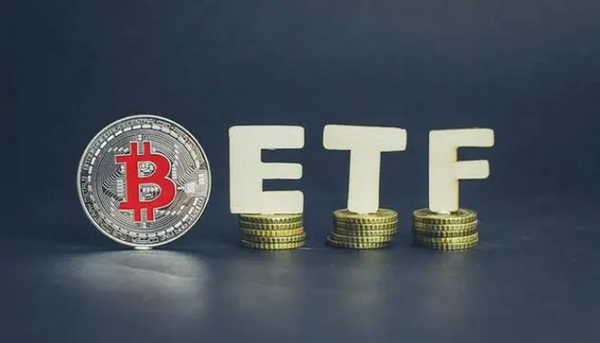-
 Bitcoin
Bitcoin $89,648.9936
3.10% -
 Ethereum
Ethereum $1,634.9935
0.83% -
 Tether USDt
Tether USDt $1.0001
0.00% -
 XRP
XRP $2.1121
0.22% -
 BNB
BNB $607.5525
1.13% -
 Solana
Solana $142.6148
3.47% -
 USDC
USDC $1.0001
0.01% -
 Dogecoin
Dogecoin $0.1661
3.19% -
 TRON
TRON $0.2448
1.39% -
 Cardano
Cardano $0.6440
0.74% -
 Chainlink
Chainlink $13.6009
1.53% -
 Avalanche
Avalanche $20.6094
0.82% -
 UNUS SED LEO
UNUS SED LEO $8.8353
-2.27% -
 Stellar
Stellar $0.2517
-1.99% -
 Sui
Sui $2.3807
6.54% -
 Shiba Inu
Shiba Inu $0.0...01288
2.64% -
 Hedera
Hedera $0.1748
3.14% -
 Toncoin
Toncoin $2.9376
-2.23% -
 Bitcoin Cash
Bitcoin Cash $347.8515
3.11% -
 Hyperliquid
Hyperliquid $18.5705
4.28% -
 Litecoin
Litecoin $80.3426
0.58% -
 Polkadot
Polkadot $3.8094
-2.11% -
 Dai
Dai $1.0000
0.00% -
 Bitget Token
Bitget Token $4.4853
1.04% -
 Ethena USDe
Ethena USDe $0.9992
0.00% -
 Pi
Pi $0.6384
0.98% -
 Monero
Monero $217.3786
0.45% -
 Pepe
Pepe $0.0...08251
4.70% -
 Uniswap
Uniswap $5.4544
0.75% -
 Aptos
Aptos $5.0198
-2.62%
how bitcoin etf earns money
The investment manager of a physically backed Bitcoin ETF earns revenue by charging a management fee, typically expressed as a percentage of the fund's assets under management (AUM).
Oct 30, 2024 at 08:15 am

How Bitcoin ETFs Earn Money
Bitcoin exchange-traded funds (ETFs) have become increasingly popular in recent years as a way for investors to gain exposure to the cryptocurrency market. Bitcoin ETFs offer several benefits over investing directly in Bitcoin, such as lower fees, diversification, and the ability to trade on traditional stock exchanges.
There are two main types of Bitcoin ETFs: physically backed ETFs and futures-based ETFs. Physically backed ETFs hold actual Bitcoin in a trust, while futures-based ETFs track the price of Bitcoin futures contracts.
How do physically backed Bitcoin ETFs earn money?
Physically backed Bitcoin ETFs earn money through a variety of fees, including:
- Management fees: The investment manager of the ETF charges a fee for managing the fund's assets. This fee is typically expressed as a percentage of the fund's assets under management (AUM).
- Custodian fees: The ETF's custodian, which holds the fund's Bitcoin, charges a fee for storing and securing the assets.
- Trading fees: The ETF's market maker charges a fee for buying and selling shares of the fund.
- Bid-ask spread: The difference between the bid price and the ask price of the fund's shares is a source of profit for the market maker.
How do futures-based Bitcoin ETFs earn money?
Futures-based Bitcoin ETFs earn money in a similar way to physically backed ETFs, but they also generate revenue from the trading of Bitcoin futures contracts. The ETF's investment manager will typically buy and sell Bitcoin futures contracts in order to track the price of Bitcoin. The ETF will then earn a profit from the spread between the price of the futures contract and the price of Bitcoin.
Are Bitcoin ETFs a good investment?
Bitcoin ETFs can be a good investment for investors who want to gain exposure to the cryptocurrency market without having to buy and store Bitcoin themselves. However, it is important to note that Bitcoin ETFs do come with some risks, such as:
- Volatility: The price of Bitcoin is highly volatile, which can lead to large fluctuations in the value of Bitcoin ETFs.
- Tracking error: The price of Bitcoin ETFs may not always track the price of Bitcoin perfectly, which can result in losses for investors.
- Fees: The fees charged by Bitcoin ETFs can eat into your investment returns.
If you are considering investing in Bitcoin, it is important to do your research and understand the risks involved. Bitcoin ETFs can be a convenient and cost-effective way to gain exposure to the cryptocurrency market, but they are not without their drawbacks.
Disclaimer:info@kdj.com
The information provided is not trading advice. kdj.com does not assume any responsibility for any investments made based on the information provided in this article. Cryptocurrencies are highly volatile and it is highly recommended that you invest with caution after thorough research!
If you believe that the content used on this website infringes your copyright, please contact us immediately (info@kdj.com) and we will delete it promptly.
- From a Coin That Wasn't Supposed to Exist to Another That Got Melted Down
- 2025-04-22 21:00:12
- 3 Cryptos to Buy Now Before Parabolic Gains Hit
- 2025-04-22 21:00:12
- Coinbase Derivatives launches XRP-Future contracts, approved by the American Commodity Futures Trading Commission (CFTC)
- 2025-04-22 20:55:13
- Amp (AMP) price prediction: Can this token continue its bullish run?
- 2025-04-22 20:55:13
- Trump Establishes a Limited Bitcoin Strategic Reserve via Executive Order
- 2025-04-22 20:50:12
- Meme Coin Did Not Ruin This Cycle, But Instead Accelerated the Maturity of the Industry as a Market Catalyst
- 2025-04-22 20:50:12
Related knowledge

What is the difference in returns between long-term holding of a Bitcoin ETF and holding Bitcoin directly?
Apr 09,2025 at 04:15am
When considering the difference in returns between long-term holding of a Bitcoin ETF and holding Bitcoin directly, it's essential to understand the nuances and factors that affect each investment option. Both approaches have their unique advantages and potential drawbacks, which can significantly impact the overall returns over time. Understanding Bitc...

How is the "roll cost" of a futures Bitcoin ETF generated?
Apr 08,2025 at 01:22pm
The 'roll cost' of a futures Bitcoin ETF is a critical concept for investors to understand, as it directly impacts the performance of the ETF. In this article, we will delve into the mechanics of how the roll cost is generated, exploring the underlying processes and factors that contribute to this cost. Understanding Futures ContractsFutures contracts a...

How can the premium or discount of a Bitcoin ETF be narrowed through an arbitrage mechanism?
Apr 09,2025 at 12:07am
Arbitrage mechanisms play a crucial role in narrowing the premium or discount of a Bitcoin Exchange Traded Fund (ETF). Understanding how these mechanisms work can provide valuable insights into the dynamics of Bitcoin ETFs and their relationship with the underlying asset. This article will delve into the specifics of how arbitrage can be used to align t...

What factors affect the bid-ask spread of a Bitcoin ETF?
Apr 08,2025 at 08:50pm
The bid-ask spread of a Bitcoin Exchange Traded Fund (ETF) is a critical metric that investors and traders closely monitor. It represents the difference between the highest price a buyer is willing to pay (bid) and the lowest price a seller is willing to accept (ask). Several factors influence this spread, and understanding them can help investors make ...

How is the seed capital of a Bitcoin ETF used?
Apr 10,2025 at 02:15pm
The seed capital of a Bitcoin ETF plays a crucial role in the establishment and operation of the fund. This initial investment is used to create the fund's underlying assets, manage operational costs, and ensure the ETF can start trading on an exchange. Understanding how this seed capital is utilized provides insight into the mechanics of Bitcoin ETFs a...

What is the difference between "physically backed" and "synthetic" Bitcoin ETFs in terms of holding assets?
Apr 10,2025 at 04:56pm
Bitcoin Exchange Traded Funds (ETFs) have become a popular way for investors to gain exposure to the cryptocurrency market without directly owning the underlying asset. There are two primary types of Bitcoin ETFs: physically backed and synthetic. Understanding the differences between these two types, particularly in terms of how they hold assets, is cru...

What is the difference in returns between long-term holding of a Bitcoin ETF and holding Bitcoin directly?
Apr 09,2025 at 04:15am
When considering the difference in returns between long-term holding of a Bitcoin ETF and holding Bitcoin directly, it's essential to understand the nuances and factors that affect each investment option. Both approaches have their unique advantages and potential drawbacks, which can significantly impact the overall returns over time. Understanding Bitc...

How is the "roll cost" of a futures Bitcoin ETF generated?
Apr 08,2025 at 01:22pm
The 'roll cost' of a futures Bitcoin ETF is a critical concept for investors to understand, as it directly impacts the performance of the ETF. In this article, we will delve into the mechanics of how the roll cost is generated, exploring the underlying processes and factors that contribute to this cost. Understanding Futures ContractsFutures contracts a...

How can the premium or discount of a Bitcoin ETF be narrowed through an arbitrage mechanism?
Apr 09,2025 at 12:07am
Arbitrage mechanisms play a crucial role in narrowing the premium or discount of a Bitcoin Exchange Traded Fund (ETF). Understanding how these mechanisms work can provide valuable insights into the dynamics of Bitcoin ETFs and their relationship with the underlying asset. This article will delve into the specifics of how arbitrage can be used to align t...

What factors affect the bid-ask spread of a Bitcoin ETF?
Apr 08,2025 at 08:50pm
The bid-ask spread of a Bitcoin Exchange Traded Fund (ETF) is a critical metric that investors and traders closely monitor. It represents the difference between the highest price a buyer is willing to pay (bid) and the lowest price a seller is willing to accept (ask). Several factors influence this spread, and understanding them can help investors make ...

How is the seed capital of a Bitcoin ETF used?
Apr 10,2025 at 02:15pm
The seed capital of a Bitcoin ETF plays a crucial role in the establishment and operation of the fund. This initial investment is used to create the fund's underlying assets, manage operational costs, and ensure the ETF can start trading on an exchange. Understanding how this seed capital is utilized provides insight into the mechanics of Bitcoin ETFs a...

What is the difference between "physically backed" and "synthetic" Bitcoin ETFs in terms of holding assets?
Apr 10,2025 at 04:56pm
Bitcoin Exchange Traded Funds (ETFs) have become a popular way for investors to gain exposure to the cryptocurrency market without directly owning the underlying asset. There are two primary types of Bitcoin ETFs: physically backed and synthetic. Understanding the differences between these two types, particularly in terms of how they hold assets, is cru...
See all articles























































































